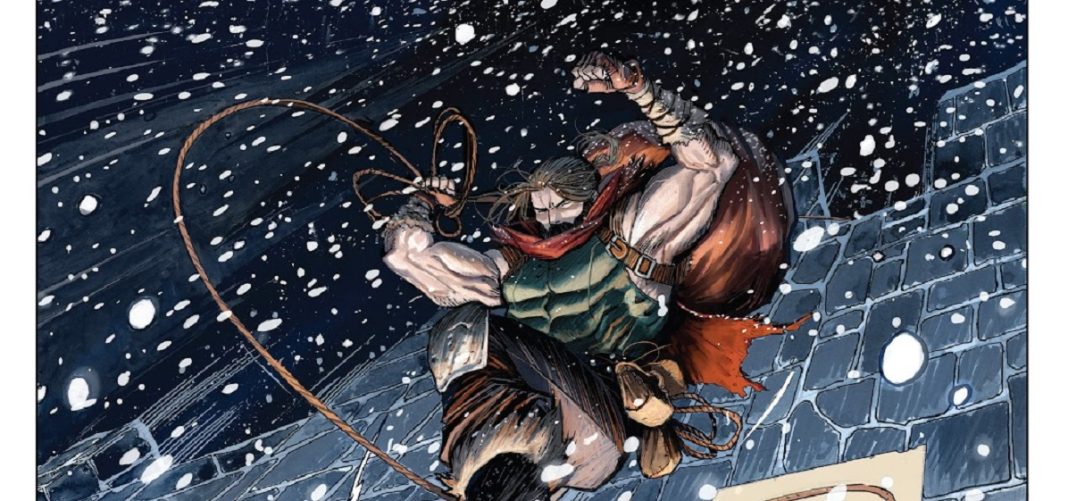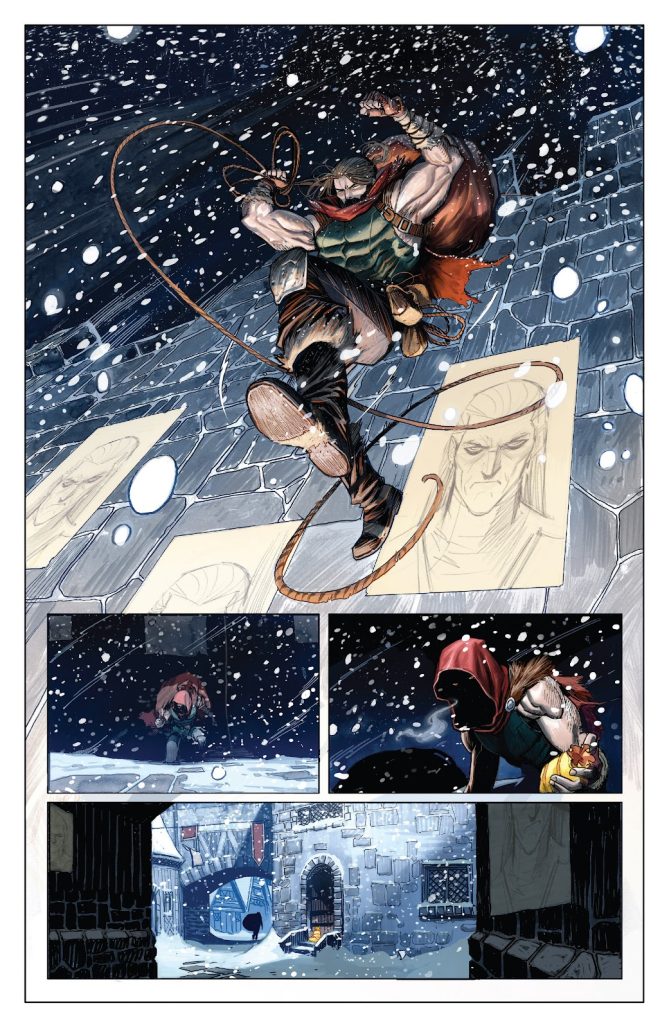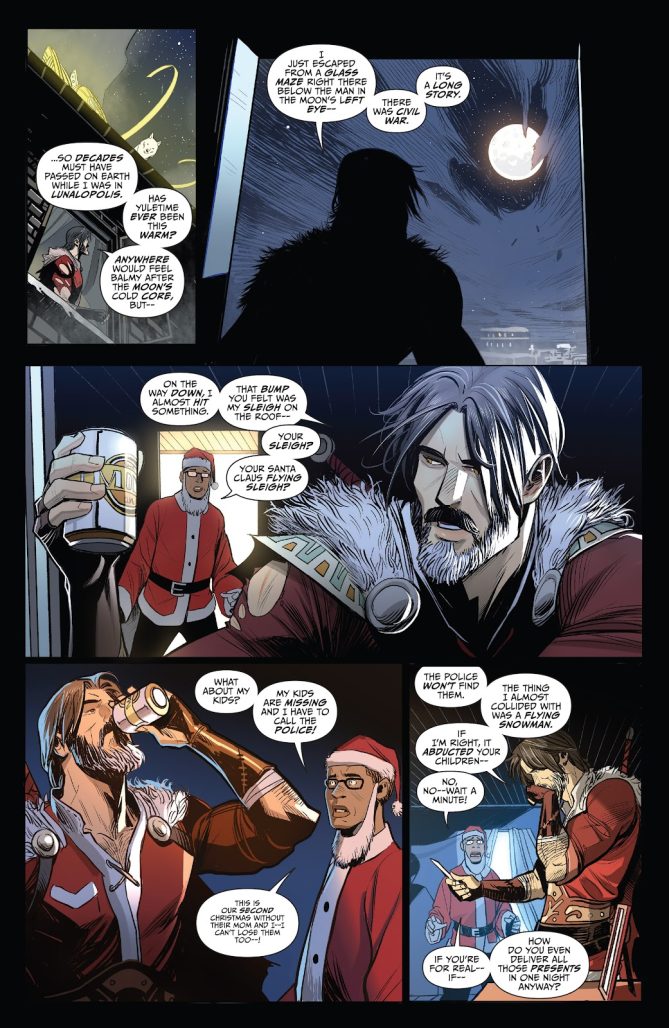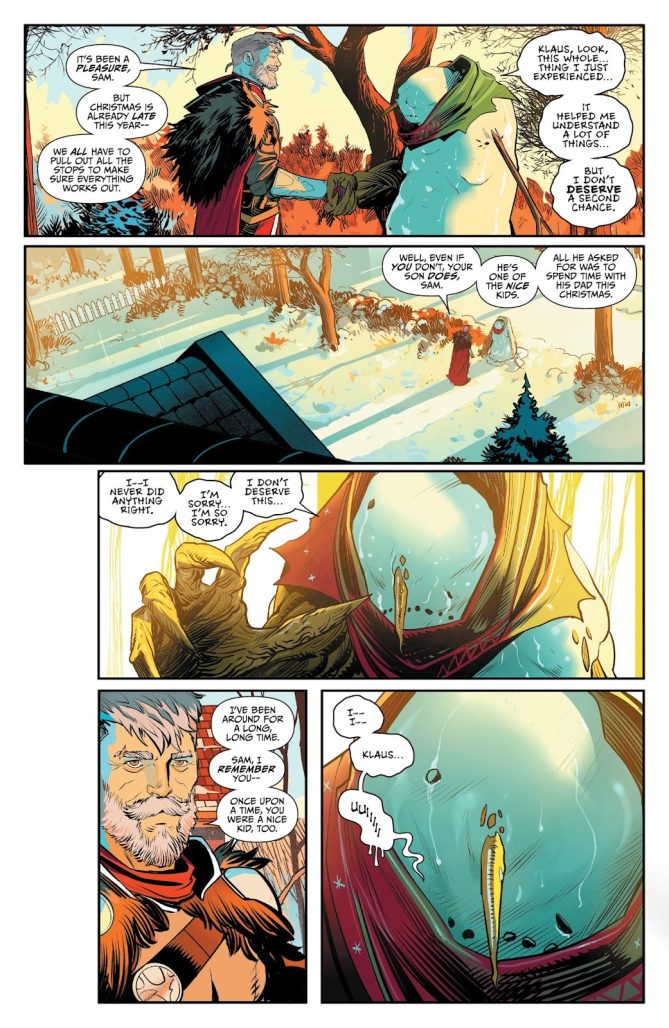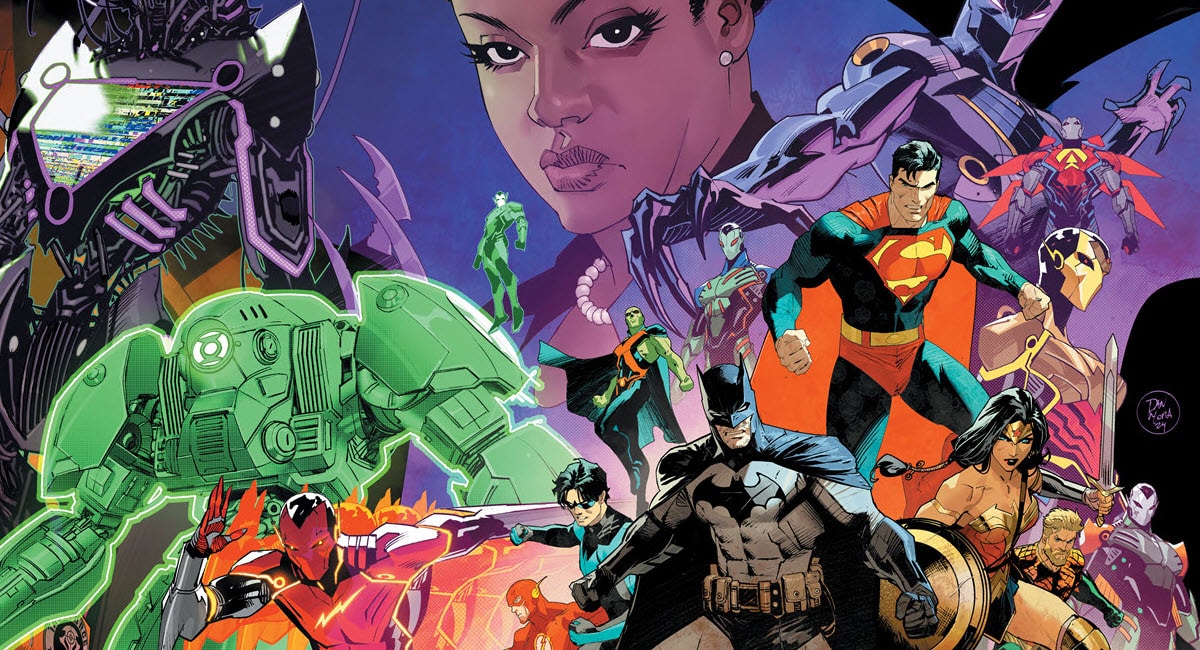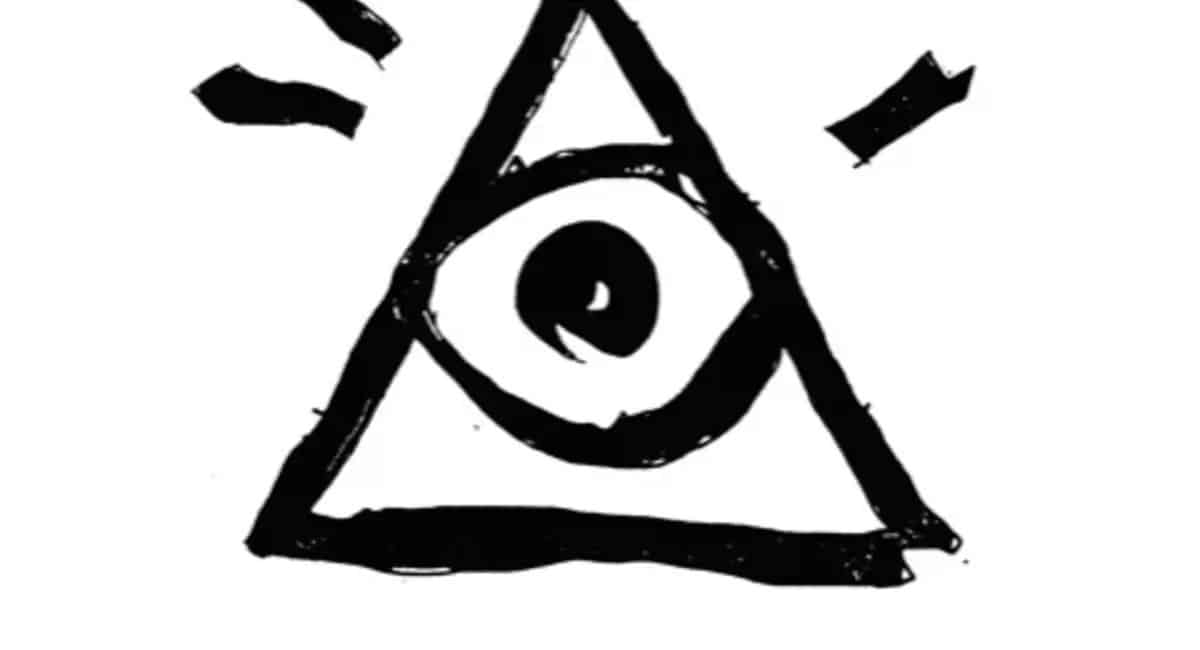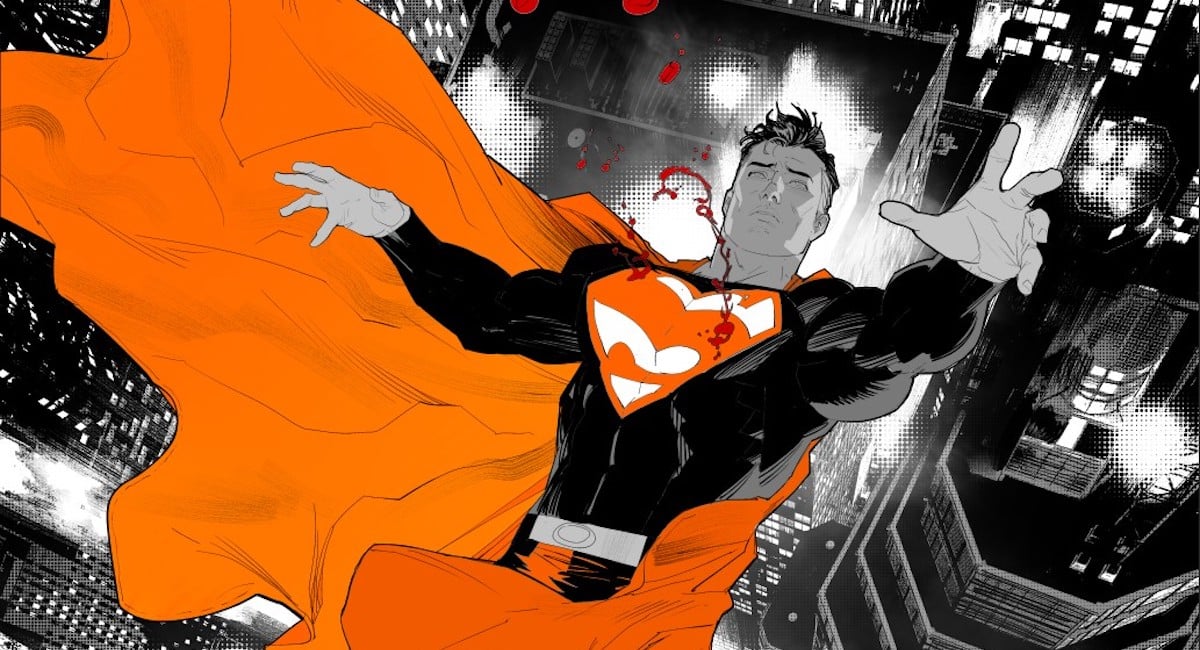The Complete Klaus Deluxe Edition
Writer: Grant Morrison
Artist: Dan Mora
Color: Doug Campos
Letterer: Ed Dukeshire
Publisher: Boom! Studios
Publication Date: November 2023
In 2015, Boom! Studios announced that Grant Morrison and Dan Mora were embarking on a journey to tell “Santa Claus: Year One,” or more accurately “Year Zero,” as Morrison says in an interview with CBR at the time. The vision sounds rather simple: The origin of Santa Claus, a sweeping Life and Times series of adventures in the style of Morrison’s famous tenures on Superman and Batman, except with a character not actively owned and marketed by a major corporation. Over the years, I’ve tried to explain Klaus to people and nothing quite sells it like Morrison’s own words: “This Christmas it’s all about psychedelic shamanism, anti-authoritarian guerrilla gift-giving, and the jingle bells of freedom!”
Speaking on the inspiration of the series, Morrison stated “Weirdly enough, no one’s done the origin story. I think there was one film from the ’60s or something — I can’t remember who did it, but it was a kind of origin for Santa.” Strictly speaking, this is not true. The origin of Santa Claus was told several times in fiction prior to Klaus. Rankin/Bass produced the stop motion origin film Santa Claus is Coming to Town (1970), which might be the one Morrison is referring to here. However, in addition, L . Frank Baum of The Wizard of Oz fame wrote an origin novel titled The Life and Adventures of Santa Claus published in 1902, which was then adapted twice: once by Rankin/Bass in 1985, and then once as a direct-to-video film released by Universal. Also in 1985, Salkind & Spengler produced Santa Claus: The Movie as an origin film that also specifically referenced Superman: The Movie as inspiration.
Following Klaus, we now have the 2019 animated film, Klaus, released by Netflix which Morrison makes mention of wanting to beat to market: “I know there’s a new movie happening, which is one of the reasons I wanted to get this out there.”
What makes Klaus standout, however, is that no one has quite tackled an origin of Santa Claus that captures the quintessential appeal of an all-powerful immortal who loves children in quite this way. In recent years, much has been said about whether parents should lie to their children about the existence of Santa Claus. Today we wrestle with the very simple notion that actively lying to your kids is bad, not to mention the emotional blackmail that comes with saying “Santa is watching!” Furthermore, what does it say about how we teach kids the spirit of the holiday when we defer the thanks and vengeance of our specific Christmas experience onto a god-like myth rather than our own families and loved ones? Santa is a thorny idea, and not one that immediately feels like it has the room to evolve into something better.
In Klaus, all of this is tackled by taking the moral resonance of superheroes and juxtaposing it against the social conditions that birth folklore, in the spirit of John Henry or Ned Ludd: countercultural legends of people against oppression of workers. We meet Klaus as he returns to a once joyous city that has since been oppressed by a miserly, cruel Baron. The children are unhappy and the families cannot be together for the holidays. Everyone works and toils under the inhuman conditions of early industrial society where the concept of Christmas cannot take root. Enter Klaus, drawn by the incomparable Dan Mora who brings to him both stern, wildman edge and supreme, iconic elegance. Klaus finds himself at war with the very notion of capitalistic exploitation and an ascetic society where self punishment is viewed as nobility.
In contextualizing Santa as the outsider, embodiment of justice and holiday cheer, against a spiritually sick society, Klaus captures the delicate balance between a mature genre exploration while at the same time having the heart and sincerity that you only think possible in the eyes of children at Christmas. The series exceeds the limits of simply being folklore or superhero fiction, and represents instead the unique magic made possible when we allow these cross-sections of storytelling style to speak to each other and evolve simultaneously. Klaus is both a superhero story that does not treat superhero tropes as ends in themselves, and also a series of fables that use the undying optimism of superheroes to bring the bizarre, the scary and the weird down to simple terms of good and evil. It is grounded in the conditions for the possibility of revolutionary myth, while also being fantastical and heroic.
The artwork by Dan Mora is crucial to Klaus’ ability to connect folklore myth-making with the superhero genre. Today, Mora is a household name, having worked on World’s Finest with Mark Waid, Detective Comics with Mariko Tamaki and Once & Future with Kieron Gillen. In Klaus, we see Mora’s early work and how well defined he was from the start. Not only is he able to homage classic Superman art with Klaus, but he also crafts a fantasy world brimming with atmosphere and holiday spirit. He moves seamlessly between Klaus’s superheroic antics to more traditional sword and sorcery without ever making these shifts jarring. Mora’s characters are also wonderfully expressive and appropriately over the top to convey the hyper reality of the world we’re in. In particular, Mora chooses to display the changing hearts of Dagmar and Jonas with a sensitivity we aren’t used to seeing in action heavy comics.
However, Superheroes and folklore are only one part of the mixture here. The other part is Morrison/Mora having their turn at Doctor Who. Klaus is a seemingly all powerful, thousand year old immortal who travels across time and space. We meet him in the middle of adventures that we never fully understand, even sometimes slightly out of order. He has companions with histories we only learn bits and pieces of, treating the gaps in our knowledge like missing episodes in the long run of Santa Claus.
Morrison has made no secret for years that they want to work on Doctor Who, even sneaking a TARDIS into the background of Superman & The Authority. Thus, their desire to tell the tales of an all-loving immortal engine of impossible storytelling finds voice in Klaus. In each of the annual one-shots by Morrison and Mora, we usually find ourselves out of time, with several adventures already behind us. Klaus takes on some form of companion, whether that be the children he’s rescuing or a crying snowman. And in at least one instance, time travel is the key to the story’s success. Like the Doctor, Klaus does not simply follow a linear path Christmas after Christmas. Instead he travels the cosmos fighting evil, helping families, and embodying the spirit of Christmas for others to emulate.
Klaus follows the mold of all good Doctor Who stories by balancing childhood magic with the scary, impending notions of death. Peter Capaldi, the 12th Doctor, has discussed Doctor Who is ultimately a series about coming to terms with death and has a built-in device to start fresh with each regeneration. While Klaus himself does not die and regenerate, he does operate with a legion of other Santas, all expressions of different cultures, time periods, and social conflicts, much like the Doctor. The Doctor and Santa’s many faces are all ultimately a result of when we meet them, and each of those meetings is based on what we most need to hear, what the Doctor or Santa may need to give us to help us in our journey across time and space.
But above all, like the Doctor, Klaus is keenly aware of his place in the hearts of children. In his final episode, “Twice Upon a Time,” the 12th Doctor says “Sometimes – if their hearts are in the right place, and the stars are too – children can hear your name.” In an 11th Doctor story, “Night Terrors,” the Doctor hears a boy plead “please save me from the monsters” across time and space, and comes to save him. Doctor Who succeeds not when you have the most convoluted time travel mystery ever, but when the series aims at the simple realities of life and death that are clear to children, without losing the magic of believing in something that gives them strength.
In the words of the 11th Doctor: “in nine hundred years of time and space and I’ve never met anybody who wasn’t important.” This is ultimately the ethos of Klaus. The parents who work hard all year for your gifts are Santa Claus, the figures of your own counter cultural myth are Santa Claus, everyone deserves to have a merry Christmas, or in Klaus’ dramatic declaration, “there are no bad children.”
Klaus is a modern classic, and unequivocally some of Grant Morrison and Dan Mora’s best work to date. Nothing quite matches the endless wonder, possibility and sheer craft that goes into reading this series. The holiday season, already home to many classics like It’s A Wonderful Life or various Doctor Who Christmas specials, would still feel incomplete without an annual journey into the world of Klaus.
Final Verdict: BUY
Check out more entries in our TRADE RATING series, which looks at collections of published comics.


